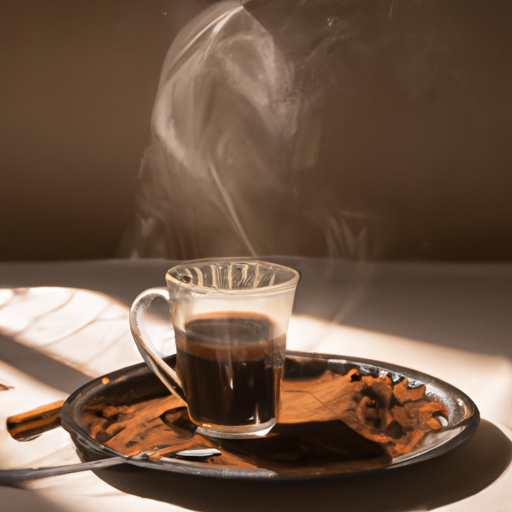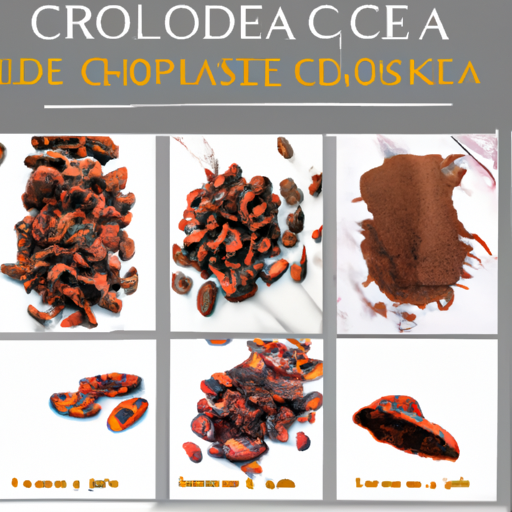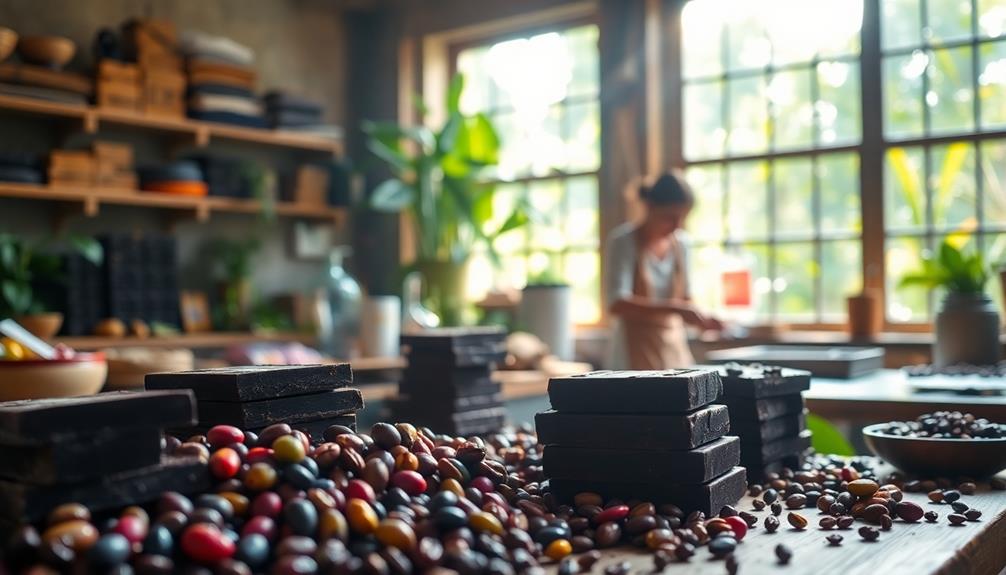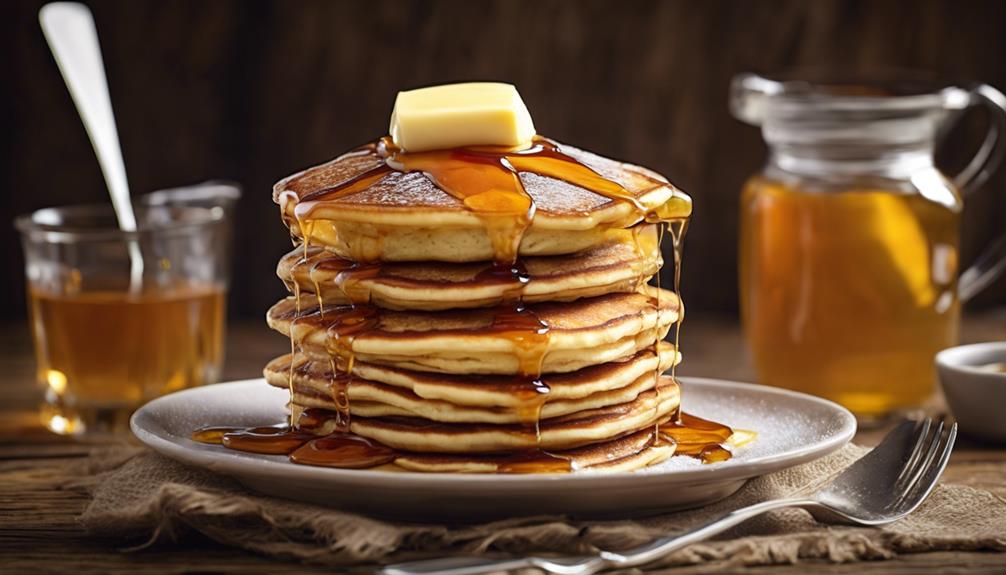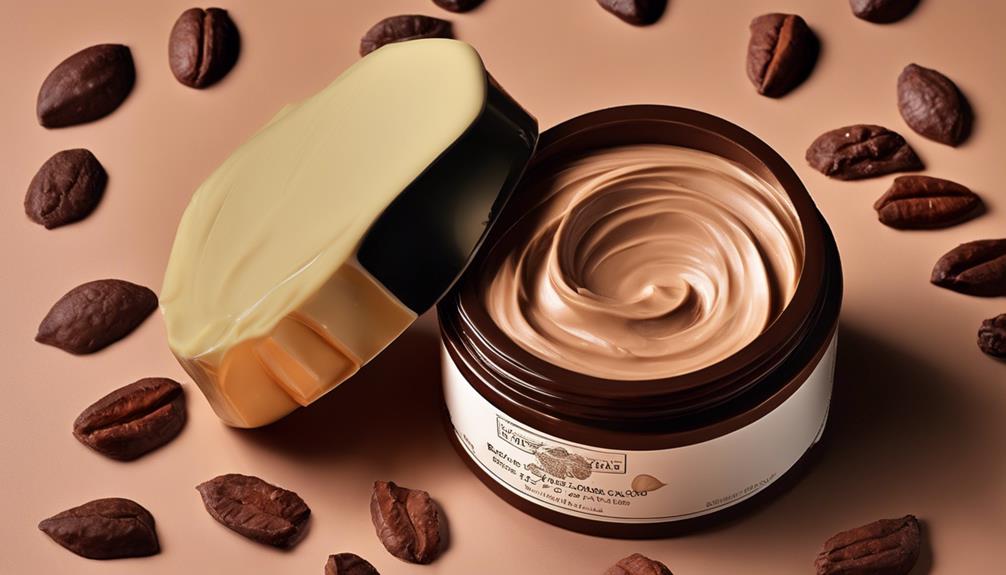Are you aware that fasting has gained popularity as a method for improving health and achieving weight loss goals?
As someone who has been exploring different fasting methods, I have often wondered if I can enjoy my morning cup of coffee with a dash of raw cacao powder while fasting.
In this article, we will delve into the science behind fasting, the benefits of coffee during fasting, and the nutritional value of raw cacao powder.
We will also discuss the compatibility of coffee and raw cacao powder with fasting, including their potential effects on insulin and blood sugar levels, as well as their impact on autophagy and cellular cleansing.
Additionally, we will consider the importance of caloric intake and breaking the fast correctly.
Lastly, we will explore alternative options for fasting beverages.
By the end of this article, you will be equipped with the knowledge to make informed choices during fasting.
So, let’s dive in!
Key Takeaways
- Fasting allows for making informed choices about what to consume, taking into consideration the nutritional value and potential effects on the fasting state.
- Coffee with raw cacao powder can be an alternative option during fasting, providing potential health benefits such as antioxidants and mood enhancement.
- When making beverage choices during fasting, it is important to consider personal goals and ensure they align with the fasting goals.
- Staying informed and mindful throughout the fasting journey is crucial to make informed choices and maintain a balanced diet.
Understanding the Basics of Fasting
Understanding fasting methods and tips for managing hunger during fasting can help answer the question of whether you can enjoy a cup of coffee with raw cacao powder during your fast. Fasting is an eating pattern that involves abstaining from food or drinks for a certain period of time. There are different fasting methods, such as intermittent fasting and time-restricted eating, which dictate when and how long you fast.
During a fast, it’s important to avoid consuming any calories, including those in coffee with raw cacao powder. While coffee itself is often allowed during fasting due to its minimal calorie content, adding raw cacao powder can introduce calories and potentially break your fast.
In the next section, we will explore the benefits of coffee during fasting.
Exploring the Benefits of Coffee during Fasting
When it comes to fasting, incorporating coffee into your routine can offer several benefits. Coffee is known to increase metabolism, suppress appetite, and enhance focus, which can be particularly helpful during fasting periods. Additionally, the caffeine in coffee provides an energy boost, making it easier to push through the fasting hours.
However, it’s important to be mindful of potential drawbacks. Coffee can cause stomach discomfort and disrupt sleep patterns if consumed in excess. It’s also important to consider the long-term effects of relying on coffee for energy during fasting, as it may lead to dependency or tolerance.
Transitioning into the subsequent section about the nutritional value of raw cacao powder, it’s important to explore other natural ingredients that can enhance fasting benefits.
The Nutritional Value of Raw Cacao Powder
Indulging in a velvety, rich treat like raw cacao powder can provide a delightful burst of nutrients to your fasting routine.
Raw cacao powder is not only delicious but also packed with nutritional benefits. It contains high levels of antioxidants, which help protect the body against free radicals and reduce inflammation.
Additionally, raw cacao powder is a good source of minerals like magnesium, iron, and potassium. These minerals are essential for various bodily functions, including muscle function, nerve transmission, and blood pressure regulation.
Incorporating raw cacao powder into your fasting routine can provide an added nutritional boost without breaking your fast.
Now, let’s explore the compatibility of coffee and raw cacao powder with fasting.
Compatibility of Coffee and Raw Cacao Powder with Fasting
When it comes to fasting, many people wonder if combining coffee and raw cacao powder can still be beneficial.
Coffee and raw cacao powder are both popular ingredients in various recipes, and they can provide unique flavors and health benefits. However, it’s important to consider the potential side effects of combining these two during fasting.
While coffee is known to increase alertness and may suppress appetite, raw cacao powder contains stimulants that can affect the central nervous system. This combination might result in increased heart rate, jitteriness, or insomnia, especially for those sensitive to caffeine.
Additionally, both coffee and raw cacao powder can have an impact on insulin and blood sugar levels. These potential effects on insulin and blood sugar levels will be discussed in the subsequent section.
Potential Effects on Insulin and Blood Sugar Levels
Consider how combining coffee and raw cacao powder may affect your insulin and blood sugar levels.
While both coffee and raw cacao powder are known to have potential benefits for fasting, it is important to recognize that they can also impact your body’s insulin response and blood sugar levels.
Coffee has been shown to increase insulin sensitivity, which means it may improve your body’s ability to regulate blood sugar.
On the other hand, raw cacao powder contains natural sugars that can potentially raise blood sugar levels.
Therefore, it is crucial to consume these ingredients in moderation during fasting to avoid any negative effects on insulin and blood sugar.
Understanding the potential effects on insulin and blood sugar levels can help you make informed decisions about incorporating coffee and raw cacao powder into your fasting routine.
This knowledge will now transition us into the subsequent section about the impact on autophagy and cellular cleansing.
Impact on Autophagy and Cellular Cleansing
The delightful combination of coffee and raw cacao powder may have a marvelous impact on the rejuvenation of your cells and the process of cellular cleansing. Autophagy, the body’s natural process of cellular detoxification, is stimulated during fasting. Studies have shown that both coffee and cacao can enhance autophagy, leading to improved cellular health and cleansing. Coffee contains compounds like chlorogenic acid that activate autophagy pathways, while cacao is rich in polyphenols that support cellular cleansing. Together, they create a powerful synergy that promotes the autophagy process and aids in the removal of damaged cellular components. Incorporating coffee with raw cacao powder into your fasting routine can therefore enhance the cellular detoxification and rejuvenation process. As we delve deeper into considering caloric intake and breaking the fast, it is important to understand the impact of these ingredients on the fasting state.
Considering Caloric Intake and Breaking the Fast
Indulging in this delectable combination may just be the perfect way to savor the end of your fasting journey.
When considering breaking the fast, it is important to be mindful of caloric intake. While coffee with raw cacao powder is a delicious choice, it is essential to acknowledge that both coffee and raw cacao powder contain calories. This can have an impact on the fasting state, as any caloric intake can potentially disrupt the benefits of fasting, such as autophagy and cellular cleansing.
Therefore, if your primary goal is to maximize the benefits of fasting, it may be advisable to refrain from consuming coffee with raw cacao powder during your fast. However, there are alternative options for fasting beverages that can still satisfy your cravings without breaking the fast.
Alternative Options for Fasting Beverages
Looking to satisfy your cravings with a beverage that won’t disrupt your fasting goals? Well, have we got the ultimate, mind-blowing concoction for you! Here are two alternative options for fasting beverages that will keep you hydrated and on track:
-
Herbal tea options: Herbal teas like chamomile, peppermint, or ginger can be enjoyed during fasting periods. They are low in calories and can help soothe the stomach and curb hunger pangs. Just make sure to avoid adding any sweeteners or milk.
-
Fruit infused water: Infusing water with fruits like lemon, cucumber, or berries can add a refreshing flavor to your fasting routine. Not only does it taste great, but it also provides a boost of vitamins and antioxidants without breaking your fast.
These options offer a variety of flavors to help you stay hydrated and satisfied during fasting.
Now, let’s move on to the conclusion: making informed choices during fasting.
Conclusion: Making Informed Choices during Fasting
To wrap it up, let’s take a moment to reflect on the importance of making informed choices when it comes to your fasting journey.
When fasting, it’s crucial to consider the impact of your beverage choices on your overall health and well-being. While there are alternative options available, such as coffee with raw cacao powder, it’s essential to maintain a balanced diet and ensure that these choices align with your fasting goals.
Incorporating ingredients like raw cacao powder into your coffee may offer potential health benefits, such as antioxidants and mood enhancement. However, it’s important to remember that fasting is not solely about what you consume, but also about the overall pattern of your eating habits.
Making informed choices involves considering the nutritional value, potential effects on your fasting state, and personal goals. By staying informed and mindful, you can make the best choices for your fasting journey.
Frequently Asked Questions
Can coffee with raw cacao powder break my fast?
Coffee with raw cacao powder can enhance weight loss and cognitive function. It does not break a fast. Research shows that coffee boosts metabolism and increases alertness, making it a beneficial addition to fasting.
Will adding raw cacao powder to my coffee affect the benefits of fasting?
Adding raw cacao powder to my coffee doesn’t affect the benefits of fasting. It enhances the taste with a rich, indulgent flavor. Potential side effects include increased heart rate and digestive issues, but moderation is key.
How does coffee with raw cacao powder impact autophagy and cellular cleansing during fasting?
Coffee with raw cacao powder may have a minimal impact on autophagy and cellular cleansing during fasting. However, it’s important to note that the caffeine in coffee can temporarily raise insulin levels, potentially affecting weight loss efforts.
Is it safe to consume coffee with raw cacao powder if I have diabetes or high blood sugar?
Consuming coffee with raw cacao powder may impact insulin levels in individuals with diabetes or high blood sugar. It is important to consult with a healthcare professional to determine if it is safe for you. There may be potential health benefits, but further research is needed.
Can I consume coffee with raw cacao powder during intermittent fasting?
During intermittent fasting, consuming coffee with raw cacao powder offers health benefits like improved mood and enhanced cognitive function. The best time to have this combination is during the fasting period to maximize its effects.
Can I Add Raw Cacao Powder to My Coffee While Fasting?
Adding raw cacao powder to your coffee while fasting is a common practice. However, be mindful of the potential effects on your fasting goals. Some suggest that adding extra baking soda with cacao could help mitigate the acidity, promote digestion, and enhance the flavor of your drink.
Conclusion
In conclusion, it is important to make informed choices when it comes to fasting and the consumption of coffee with raw cacao powder.
While coffee can provide certain benefits during fasting, such as increased energy and focus, it is essential to consider its potential effects on insulin and blood sugar levels.
Additionally, raw cacao powder can offer nutritional value, but it may impact autophagy and cellular cleansing.
Ultimately, the decision to include coffee with raw cacao powder in your fasting routine should be based on individual goals and preferences, taking into account the potential impact on breaking the fast.
As with any dietary choice, it is always best to consult with a healthcare professional for personalized advice.
Just like a delicate balancing act, finding the right combination of fasting beverages requires careful consideration to ensure optimal results.

